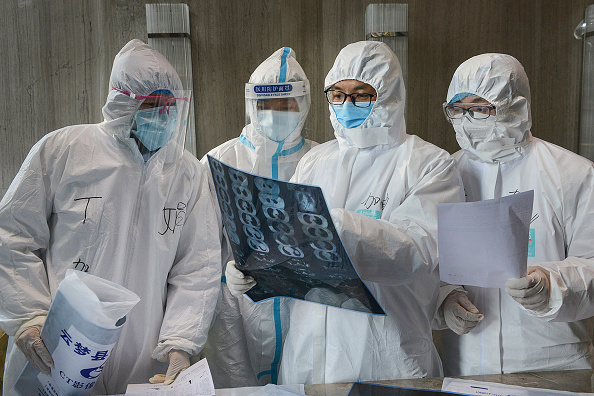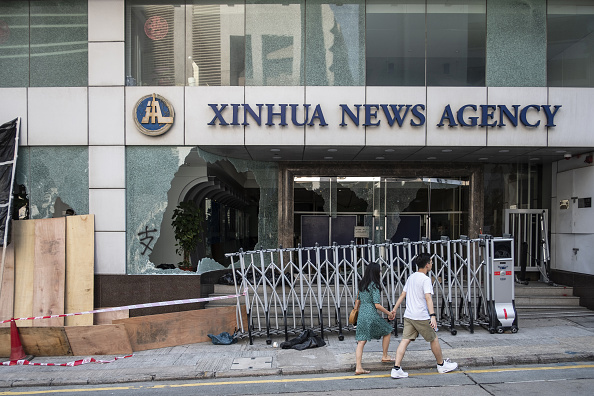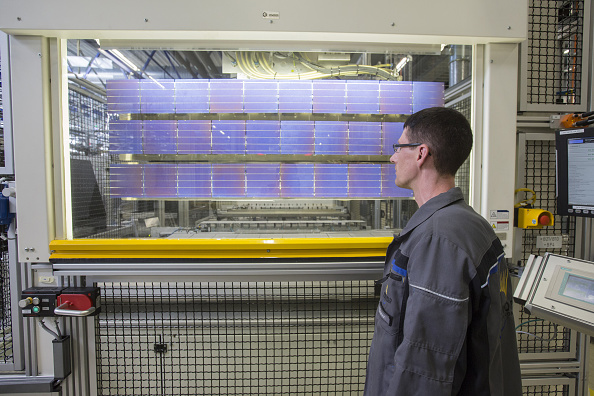
 The Virus Continues
The Virus ContinuesThe deadly spread of the coronavirus appears to be slowing down, according to the World Health Organization (WHO), which partially attributes the slowing outbreak to China's restrictions on travel within the country. Despite a slowdown in new infections, the WHO cautioned that the worst of the outbreak is not yet over, just as the number of new cases outside of China continues to grow. Thus far, over 72,000 people have been infected and 2,200 have died in the deadly epidemic that has slowed air travel, jolted financial markets, and shut down large urban centers in mainland China.
U.S.-China ties have not fared much better, as hardliners in Washington D.C. have seized upon the coronavirus to deepen the divide in the bilateral relationship. Foreign policy hawks, including Secretary of State Mike Pompeo, have used the epidemic to criticize what he referred to as the secretive and authoritarian nature of the Chinese Communist Party. However, President Trump has contradicted the message by praising President Xi's handling of the outbreak and calling for greater commercial ties between the two nations. Beijing is working hard to uphold its side of the Phase One trade agreement, granting exemptions on retaliatory duties imposed against 696 U.S. goods, the most substantial tariff relief to be offered so far.
China is grappling with the economic impact of the disease, with Chinese factories either closed or operating on a skeleton team, transportation networks down, and Chinese consumers staying at home. Meanwhile, Chinese stocks soared after Beijing cut its loan prime rate to cushion the economic blowback from the virus.
 Unsolicited Opinions
Unsolicited OpinionsChina's Foreign Ministry has expelled three Beijing-based Wall Street Journal reporters after the newspaper published an opinion article calling China "the real sick man of Asia." Many consider the phrase to be derogatory, as the term dates back to the period when many Chinese were addicted to opium imported by British merchants. The expulsions, which targeted journalists uninvolved with the publishing of op-ed, follow widespread anger over the article's alleged racism and mark the first time that multiple journalists have had their visas revoked since the Mao era. The Journal protested the move, citing the independence of the opinion page. "Our opinion pages regularly publish articles with opinions that people disagree—or agree—with and it was not our intention to cause offense with the headline on the piece," said William Lewis, the Journal's publisher.
The Trump administration has meanwhile labeled five Chinese news outlets as operatives of the Chinese state, in an effort to curb Chinese influence and intelligence operations in the United States. Xinhua, CGTN, China Radio, China Daily and The People's Daily will now be treated as foreign government functionaries, subject to similar rules as diplomats stationed in the United States.
 Technological Difficulties
Technological DifficultiesChina hardliners in Washington were further undermined by President Trump, this time over sales of high-tech products to China. Trump tweeted that certain controlled technologies, such as jet engines and semiconductors, should be sold to China to avoid business being sent elsewhere. Hawks have warned that China will pirate the technology and undermine U.S. commerce, however Trump does not want to limit market access unnecessarily. Chief executive of the Semiconductor Industry Association John Neuffer supported the move, saying "sales of non-sensitive, commercial products to China drive semiconductor research and innovation, which is critical to America's economic strength and national security."
Meanwhile, Chinese telecom giant Huawei may be gaining traction in Europe, but continues to lose ground in the USA, where a US judge rejected Huawei's challenge to restricting sales to US government agencies. Washington has worked strenuously to block Huawei's technology from the United States and around the world, but not all countries are on board to block Huawei out of their telecoms systems. Read more about U.S. efforts against Huawei on China-US Focus.
Prepared by China-US Focus editorial teams in Hong Kong and New York, this weekly newsletter offers you snap shots of latest trends and developments emerging from China every week, while adding a dose of historical perspective.
- 2020-02-15 Asserting Control
- 2020-02-08 A Novel Outbreak
- 2020-01-31 Global Health Emergency Declared
- 2020-01-24 Celebrations Grounded
- 2020-01-17 Signed, Sealed, Delivered
- 2020-01-10 Ink the Deal
- 2019-12-20 A Level Playing Field
- 2019-12-13 It’s a (Limited) Deal!
- 2019-12-06 An Arbitrary Deadline
- 2019-11-22 On or Off Again?
- 2019-11-15 Counterweight Critique
- 2019-11-08 "I haven't agreed to anything"
- 2019-11-01 Don’t Hold Your Breath
- 2019-10-25 Weaponizing Diplomacy
- 2019-10-18 Economic Shudders
- 2019-10-11 A “Big Day of Negotiations”
- 2019-10-04 Birthday Celebrations
- 2019-09-28 A World Split in Two?